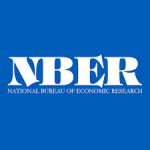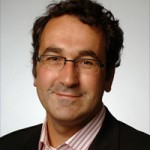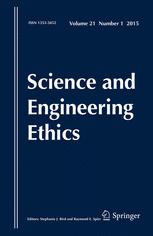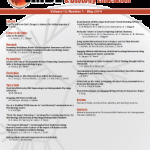 This week saw us profiled in The New York Times and de Volkskrant, and the introduction of our new staff writer. We also launched The Retraction Watch Leaderboard. Here’s what was happening elsewhere: Continue reading Weekend reads: Duplication rampant in cancer research?; meet the data detective; journals behaving badly
This week saw us profiled in The New York Times and de Volkskrant, and the introduction of our new staff writer. We also launched The Retraction Watch Leaderboard. Here’s what was happening elsewhere: Continue reading Weekend reads: Duplication rampant in cancer research?; meet the data detective; journals behaving badly
Category: studies about retractions
“If you think it’s rude to ask to look at your co-authors’ data, you’re not doing science”: Guest post
Last month, the community was shaken when a major study on gay marriage in Science was retracted following questions on its funding, data, and methodology. The senior author, Donald Green, made it clear he was not privy to many details of the paper — which raised some questions for C. K. Gunsalus, director of the National Center for Professional and Research Ethics, and Drummond Rennie, a former deputy editor at JAMA. We are pleased to present their guest post, about how co-authors can carry out their responsibilities to each other and the community.

Just about everyone understands that even careful and meticulous people can be taken in by a smart, committed liar. What’s harder to understand is when a professional is fooled by lies that would have been prevented or caught by adhering to community norms and honoring one’s role and responsibilities in the scientific ecosystem.
Take the recent, sad controversy surrounding the now-retracted gay marriage study. We were struck by comments in the press by the co-author, Donald P. Green, on why he had not seen the primary data in his collaboration with first author Michael LaCour, nor known anything substantive about its funding. Green is the more senior scholar of the pair, the one with the established name whose participation helped provide credibility to the endeavor.
The New York Times quoted Green on May 25 as saying: “It’s a very delicate situation when a senior scientist makes a move to look at a junior scientist’s data set.”
Really?
Who has the most retractions? Introducing the Retraction Watch leaderboard
Ever since we broke the news about the issues with the now-retracted Science paper about changing people’s minds on gay marriage, we’ve been the subject of a lot of press coverage, which has in turn led a number of people to ask us: Who has the most retractions?
Well, we’ve tried to answer that in our new Retraction Watch leaderboard.
Here is the current list (click here for more detailed information about our methodology and additional notes): Continue reading Who has the most retractions? Introducing the Retraction Watch leaderboard
The consequences of retraction: Do scientists forgive and forget?
 Here at Retraction Watch, we are reminded every day that everybody (including us) makes mistakes — what matters is, how you handle yourself when it happens. That’s why we created a “doing the right thing” category, to flag incidents where scientists have owned up to their errors and taken steps to correct them.
Here at Retraction Watch, we are reminded every day that everybody (including us) makes mistakes — what matters is, how you handle yourself when it happens. That’s why we created a “doing the right thing” category, to flag incidents where scientists have owned up to their errors and taken steps to correct them.
We’re not suggesting retractions have no effect on a scientist’s career — a working paper posted last month by the National Bureau of Economic Research found that principal investigators with retracted papers see an average drop of 10% in citations of their other papers, a phenomenon known as a citation penalty. But they face a bigger penalty if the retraction stemmed from misconduct, rather than an honest mistake.
This jibes with research we’ve seen before, which shows the scientific community can be forgiving when researchers own up to their mistakes – notably, a 2013 study that found scientists face no citation penalty if they ask to retract their own papers, rather than forcing the journal or publisher to act.
Continue reading The consequences of retraction: Do scientists forgive and forget?
Pressure to publish not to blame for misconduct, says new study
![]() A new study suggests that much of what we think about misconduct — including the idea that it is linked to the unrelenting pressure on scientists to publish high-profile papers — is incorrect.
A new study suggests that much of what we think about misconduct — including the idea that it is linked to the unrelenting pressure on scientists to publish high-profile papers — is incorrect.
In a new paper out today in PLOS ONE [see update at end of post], Daniele Fanelli, Rodrigo Costas, and Vincent Larivière performed a retrospective analysis of retractions and corrections, looking at the influence of supposed risk factors, such as the “publish or perish” paradigm. The findings appeared to debunk the influence of that paradigm, among others:
Continue reading Pressure to publish not to blame for misconduct, says new study
Psychology retractions have quadrupled since 1989: study

Marc Hauser. Dirk Smeesters. Diederik Stapel.
Psychology has been home to some of the most infamous cases of fraud in recent years, and while it’s just a few bad apples who are spoiling the bunch, the field itself has seen an overall increase in retractions, according to a new paper by Jürgen Margraf appearing in Psychologische Rundschau and titled “Zur Lage der Psychologie.”
That increase, Margraf found, is not entirely due to its most well-known fraudsters. Here’s the relevant figure:
Continue reading Psychology retractions have quadrupled since 1989: study
Are retractions more frequent in stem cell research?
 There are a number of fields that seem to punch above their weight on Retraction Watch: Anesthesiology, home to the world record holder (and runner-up), and psychology, home to Diederik Stapel and others. But the red-hot field of stem cell research is another that makes frequent appearances, last year’s STAP controversy being particularly prominent.
There are a number of fields that seem to punch above their weight on Retraction Watch: Anesthesiology, home to the world record holder (and runner-up), and psychology, home to Diederik Stapel and others. But the red-hot field of stem cell research is another that makes frequent appearances, last year’s STAP controversy being particularly prominent.
There’s an interesting (but unfortunately paywalled) recent paper in Science and Engineering Ethics, “The Acid Test for Biological Science: STAP Cells, Trust, and Replication,” by Cheryl Lancaster, a small part of which tries to answer that question.
Lancaster applies the same methods Fang, Steen, and Casadevall used to broadly measure the causes of retractions in all life science and biomedicine to the specific field of stem cell research: Continue reading Are retractions more frequent in stem cell research?
More evidence scientists continue to cite retracted papers
 A new paper in the MDPI journal Publications reports that the only controlled study on the effect of giving COPD patients Omega-3 has been cited 52 times since being retracted. Of those, only two mentioned the retraction.
A new paper in the MDPI journal Publications reports that the only controlled study on the effect of giving COPD patients Omega-3 has been cited 52 times since being retracted. Of those, only two mentioned the retraction.
In 2005, Chest published an article that found that COPD patients who took omega-3 supplements for 2 years experienced improvements in their condition, such as better walking tests and a decrease in sputum cytokines. But when an institutional investigation found the lead author had falsified the data, the journal retracted the paper in 2008.
That’s news to many researchers in the field. Among the 50 papers that cited the research after 2008 without stating it had been retracted, 20 included “specific data” from the paper, while the other 30 “cited the reference in passing.” Articles citing the retracted study have themselves been cited 947 times total, pointing to the ripple effect this kind of unwitting mention can have throughout the literature.
Continue reading More evidence scientists continue to cite retracted papers
What do studies of retractions tell us?
 The Journal of Microbiology & Biology Education has published a special issue on scientific ethics, and it includes an invited piece from us.
The Journal of Microbiology & Biology Education has published a special issue on scientific ethics, and it includes an invited piece from us.
In “What Studies of Retractions Tell Us,” we decided to do a literature review of the small but growing field of retraction studies. Five years ago, this would have been a very short paper, consisting of a handful of references, but we were able to find about 30 studies to include quite easily.
Here’s the abstract: Continue reading What do studies of retractions tell us?
“Research misconduct accounts for a small percentage of total funding”: Study
 How much money does scientific fraud waste?
How much money does scientific fraud waste?
That’s an important question, with an answer that may help determine how much attention some people pay to research misconduct. But it’s one that hasn’t been rigorously addressed.
Seeking some clarity, Andrew Stern, Arturo Casadevall, Grant Steen, and Ferric Fang looked at cases in which the Office of Research Integrity had determined there was misconduct in particular papers. In their study, published today in eLife: Continue reading “Research misconduct accounts for a small percentage of total funding”: Study